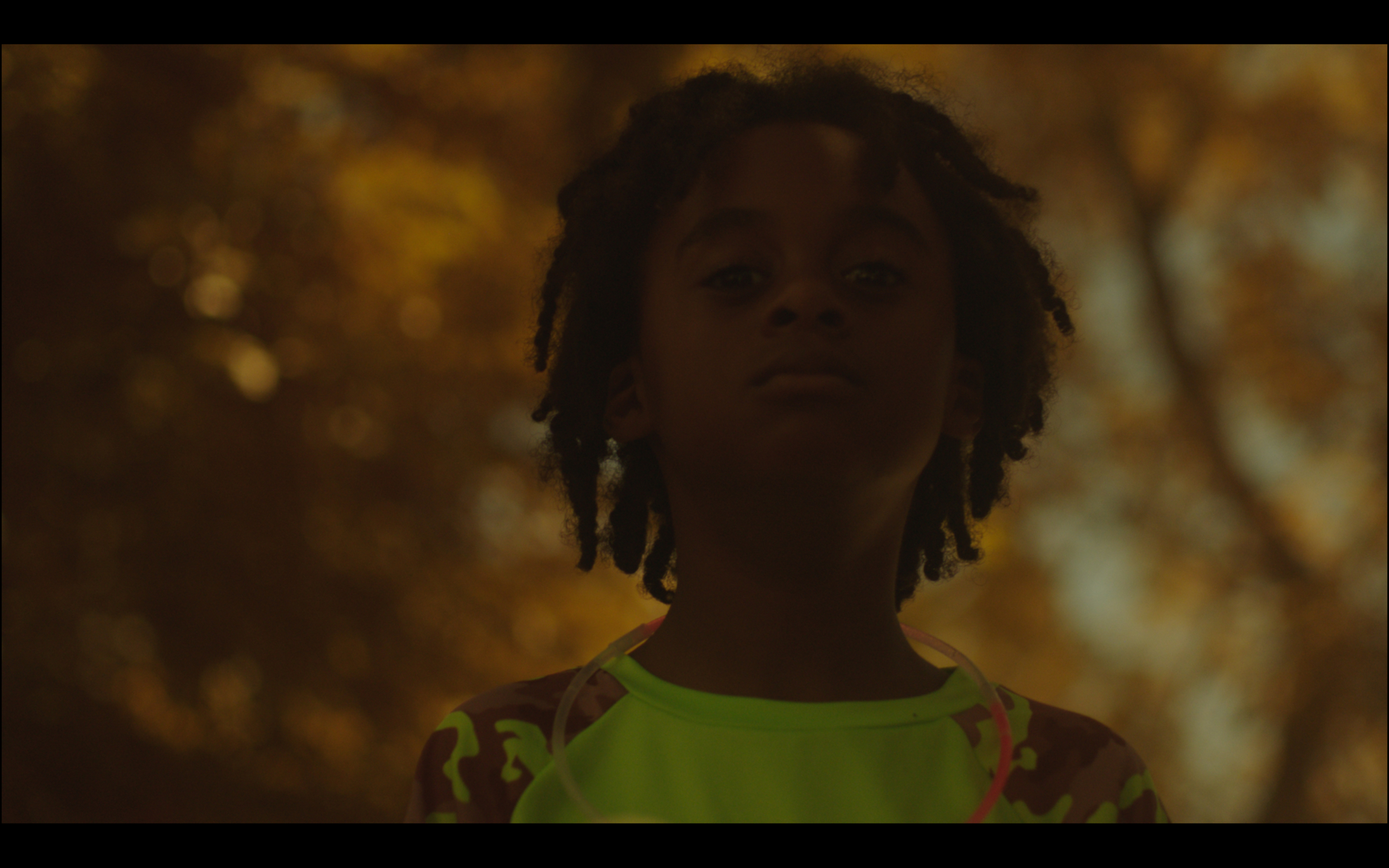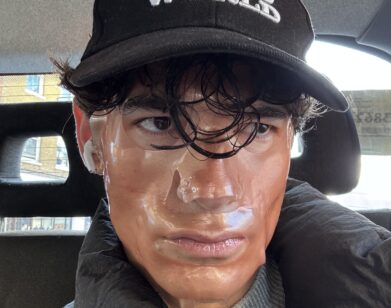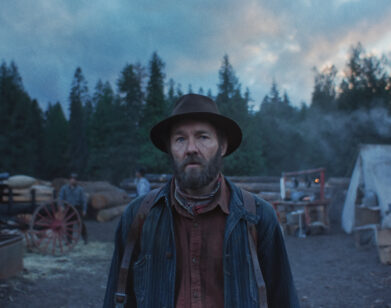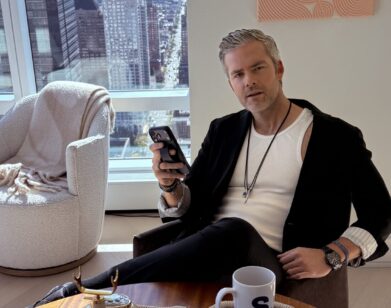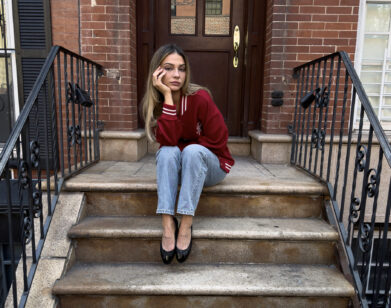film
Merawi Gerima on His Film Residue, an Ode to His Vanishing City
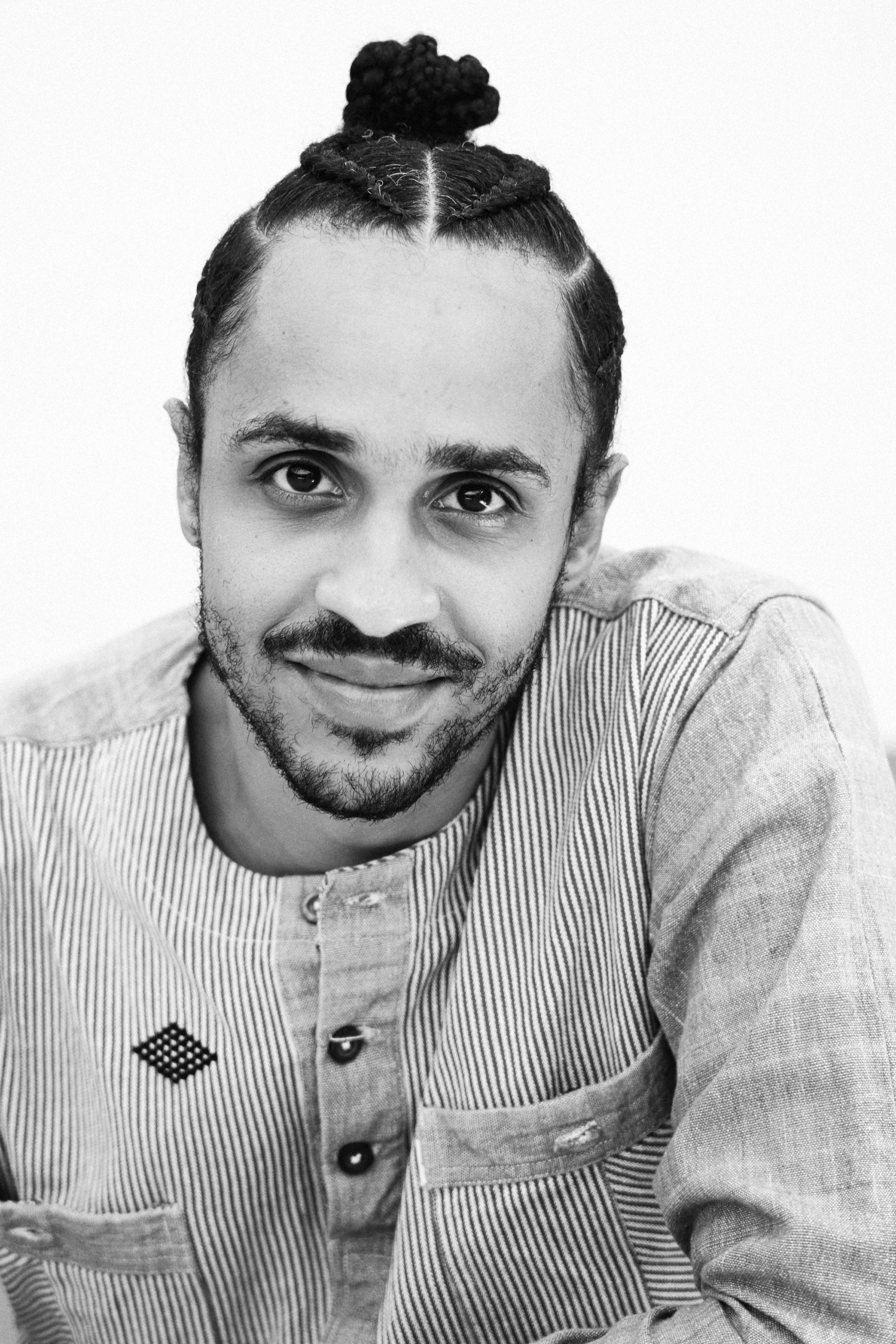
Merawi Gerima, Courtesy of ARRAY Releasing.
Filmmaker Merawi Gerima isn’t interested in telling one-dimensional stories. His debut feature film Residue, set in Washington, D.C., is an intense look at the impact of gentrification, Black identity, and the complications of returning home. The story follows aspiring filmmaker Jay (Obinna Nwachukwu) as he returns to his native, and unrecognizable, D.C. childhood neighborhood which has been ravaged by the effects of gentrification. Ostracized by neighbors and concerned with the disappearance of an old friend, Jay goes on a journey of self-reflection as he comes to terms with his ever-changing surroundings. Distributed by Ava DuVernay’s ARRAY Releasing independent film collective, Residue premiered as an official selection at this year’s 77th Venice International Film Festival’s Giornate degli Autori and was recently released on Netflix. As Gerima tells us his connection to film runs deep. He credits his father Haile Gerima, the Ethiopian filmmaker and prominent figure in the L.A. Rebellion film movement, with his tender and authentic approach to the craft. Below, Merawi Gerima spoke with Interview about the urgency of Residue, the importance of working with non-professional actors, and art’s capacity to save.
———
JULIANA UKIOMOGBE: Did you always want to make movies and be an artist or was it something that happened gradually?
MERAWI GERIMA: It happened gradually, but art and film have always been in my life. I think I went through many stages exploring and trying to find which corner of the art world really felt expressive for me. My parents are both independent Black filmmakers and when I say independent, I mean fiercely independent. They love to tell Black stories without any filter. I really didn’t have any appreciation for it growing up. But being raised in that world, I always heard, “Are you going to follow in your father’s footsteps?” At a young rebellious age, I started to reject that phantom pressure because it was other people’s pressure and not my parents’. So I went everywhere else but film. First, I went to biology, pre-med. Then I went to jazz. I was playing guitar like a fake Jimi Hendrix. I went to 3D graphics and ultimately graduated with graphic design. But as I was graduating undergrad, I still didn’t feel satiated. I still didn’t feel like I had access to a tool or medium that I could fully express myself with. It was around that time that I really started thinking seriously about film. So I applied to some film schools and here we are.
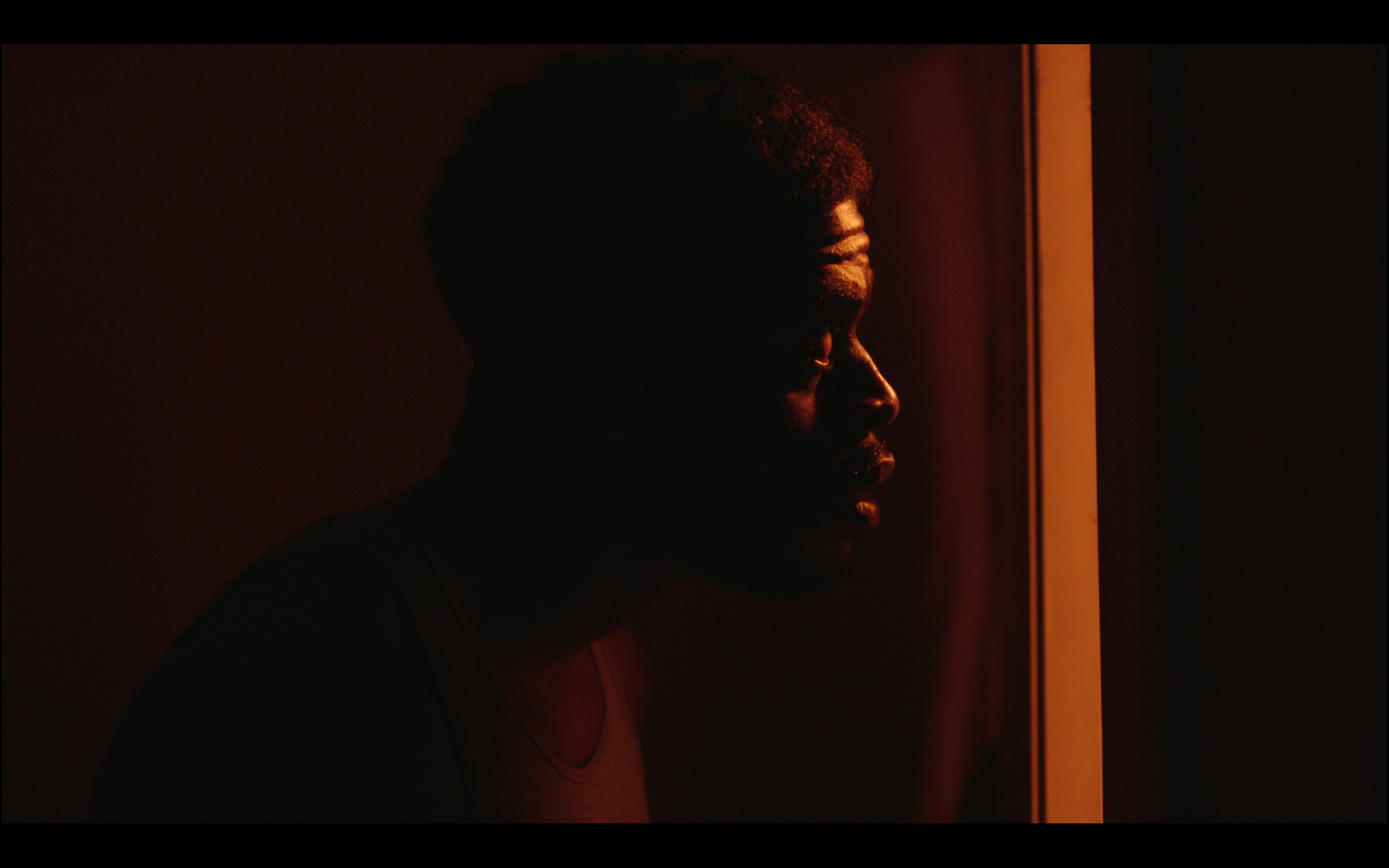
Obinna Nwachukwu as Jay in Residue.
UKIOMOGBE: When did you begin writing Residue, both physically and mentally?
GERIMA: I was looking back through my journal and I found that I had an entry from 2011, which I wrote because I had just heard some bad news about one of the guys I grew up with. Essentially, nobody knew where he was for a while. So this idea of trying to track him down just started happening. Me trying to hold on to things and reconnecting with people was a common thread through my life leading up to 2016, when I ultimately started writing the story. Of course, the initial impulse that got me writing in the first place came from seeing the utter destruction to what was happening to my community in D.C., of Black people who I knew and grew up with, this community that had birthed me. This idea of what was happening to this city around me was missing something. I think that at a certain point, I hit a wall where I felt that it wasn’t really going anywhere fruitful or really even personal. It was pretty impersonal. And really what I was waiting for was this injection of this earlier story of this guy looking for his friends that he grew up with.
UKIOMOGBE: Would you say the film is semi-autobiographical?
GERIMA: Yeah, it is. At this stage, there’s no hiding it. I think that my first instinct is to say no. When I was writing it, my first instinct was to say, “I will start with a few things that I borrowed from my life and then at a certain point, I’ll let the script have its own existence.” But I found that to be incredibly difficult because every time I put pen to paper, I was really just writing down memories and stories that I had been told about the mythology of the neighborhood I grew up in. I was writing in my own words, down to the accent of the characters and the lingo. At a certain point, it stopped making sense trying to hide it and started making sense to accept it and to be open. I think that you lose a little bit of control because at that stage, you’re just saying, “Yes, this film is about me and my childhood.” But it’s also about this process of me trying to make a film about my neighborhood, which is an unwritten story. It’s a story in motion. Literally, it is the story that I am authoring in that moment. It was an interesting process to say the least and incredibly meta because it’s a film about a filmmaker making a film in his neighborhood. It was us making a film about us. It was just crazy and kind of weird to think about.
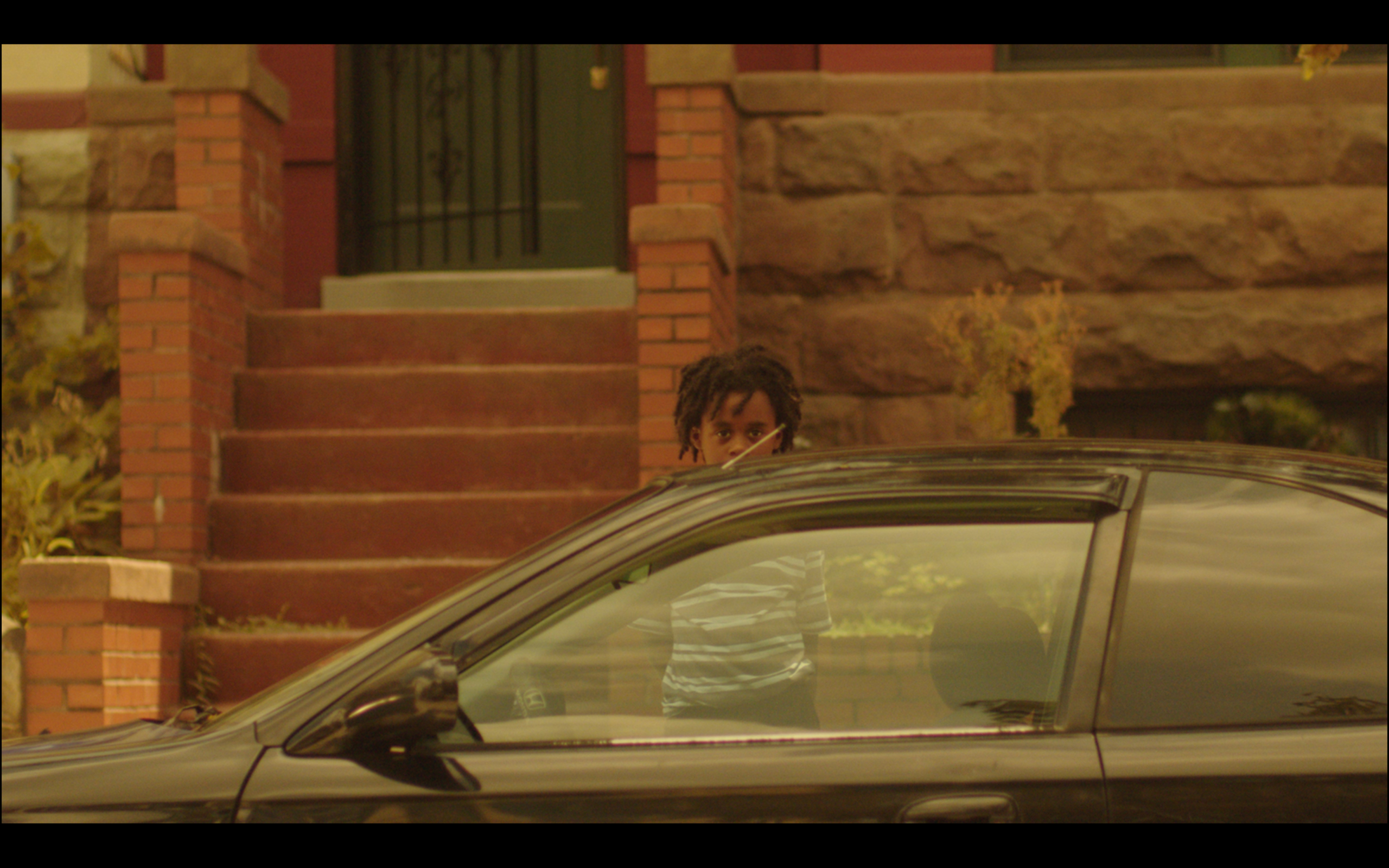
Jacari Dye as Young Jay.
UKIOMOGBE: In the movie, I thought it was interesting that we don’t completely see white people’s faces. They’re either off to the side or we get a shot of the back of their heads. Why did you decide to make that decision and center Black people?
GERIMA: Well, at first, it was a creative decision that we were forced into by the variety of our economic condition. We didn’t have money. We certainly didn’t have money to make a film of this magnitude without doing certain things. And one of the things was that we couldn’t find white actors, point blank, simple. We were in D.C. and it’s interesting because there are white people left and right, but we couldn’t find any to act in the film. We would put out casting calls online and 200-300 people would respond. But as soon as we tell them where we’re filming and what it’s about, nobody would show up. So very few white folks came to set.
UKIOMOGBE: Oh, wow.
GERIMA: Yeah. From day one of filming, we knew that we would have to be frugal with the white people that we had access to. The first neighbor who confronts Jay about his music, we shot his elbow and we shot him without showing his face because we needed to use him in the next scene with his face shown. But then after that initial solution, we just thought that it was a totally appropriate way to conduct the whole film because we felt that white people were taking up so much space in the city in general. Why not control who has access to the space in the frame? Why not keep the film, like you said, centered on Black people? The other thing is that Jay isn’t focused on them. His primary attention is on the people that are still there. The film, if nothing else, stays very close to what Jay’s focused on and where his attention is.
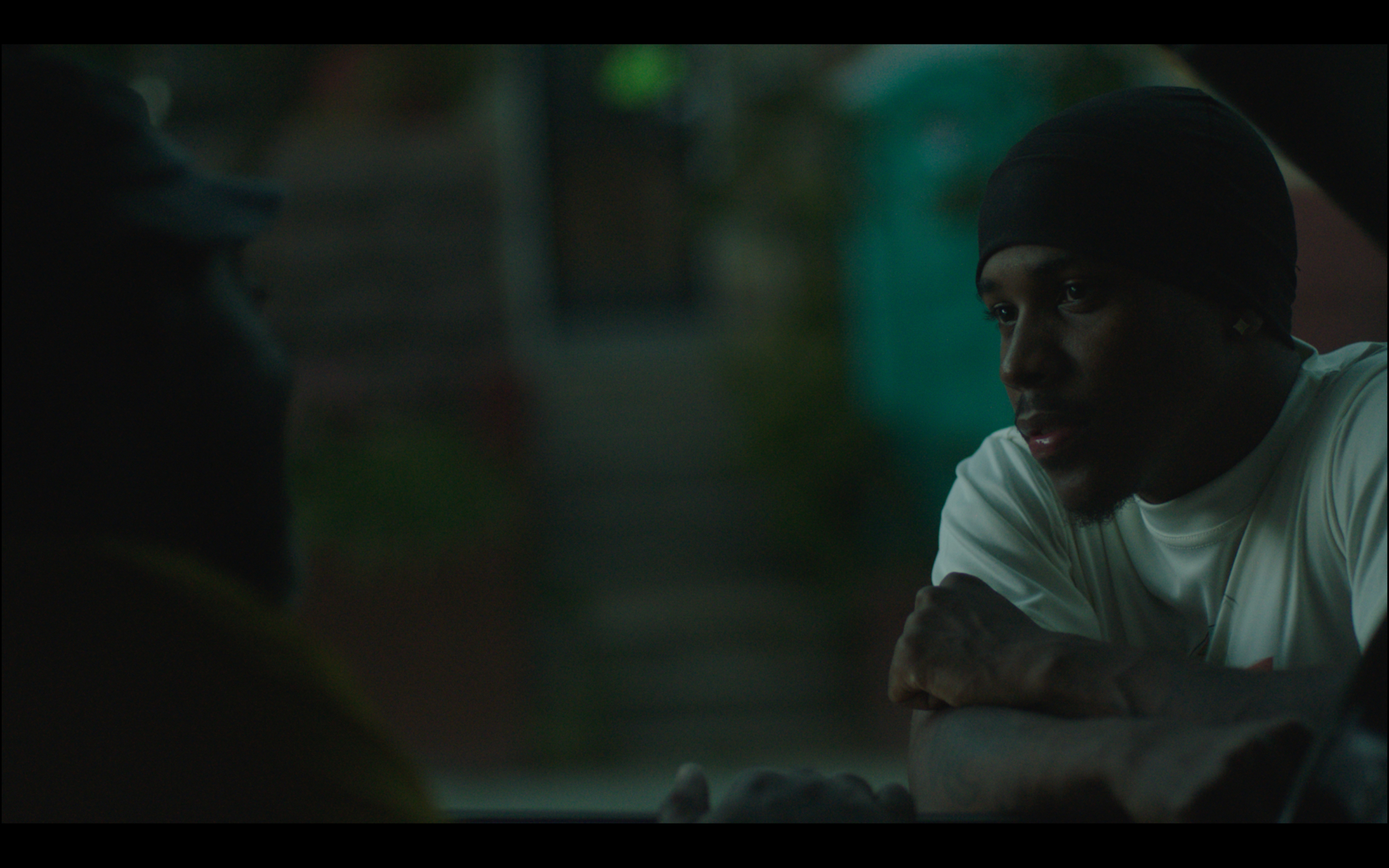
Derron Scott as Mike.
UKIOMOGBE: I really like the scene that shows white people eating brunch and then you cut to see blood on the floor at their feet. They don’t even notice it. They’re just talking and laughing, completely oblivious. That was so powerful.
GERIMA: Yeah, yeah, brunch is a big thing in D.C. and these other gentrified metropolises that are popping up. Brunch is a hallmark of a well-gentrified city. In D.C., that whole brunch culture can be very aggravating. But anyway, the idea is that at some point, even the city begins to reject them. The white people in gentrified D.C. don’t understand that there are two different worlds, two different universes overlapping each other. They’re able to live and exist without really having to know anything about the world that Black people live in. That’s part of the issue and that’s part of the way they are weaponized against the Black people who they may be well-meaning towards.
UKIOMOGBE: Why did you decide to work with non-professional actors for this?
GERIMA: It’s critical for this film to be an archive of my community in Washington, D.C. So it was important for me to include as many aspects of my people that I could, from themselves to their homes, to their ways of talking, their clothing, music, everything. As much as I could, I wanted the people, places, and culture I know to be in the movie. Those people who I know are for the most part, non-actors. The other thing is that authenticity was primary for us. I think many actors have a hard time really nailing the D.C. accent. It’s so specific. It’s so fluid. It’s so lyrical in the way that it’s a mixture of Northern and Southern twang. I wasn’t about to risk not nailing it. I was more concerned with that than acting chops. So for me, it was important to get people like Obinna Nwachukwu, who’s from the area and plays me in the movie. And then you see Dennis Lindsey who’s got raw talent just exuding every frame. I think that we were blessed in this way. But also my parents have come out of this whole thing making high production value out of very little resources. They pioneered ways of making films like this.
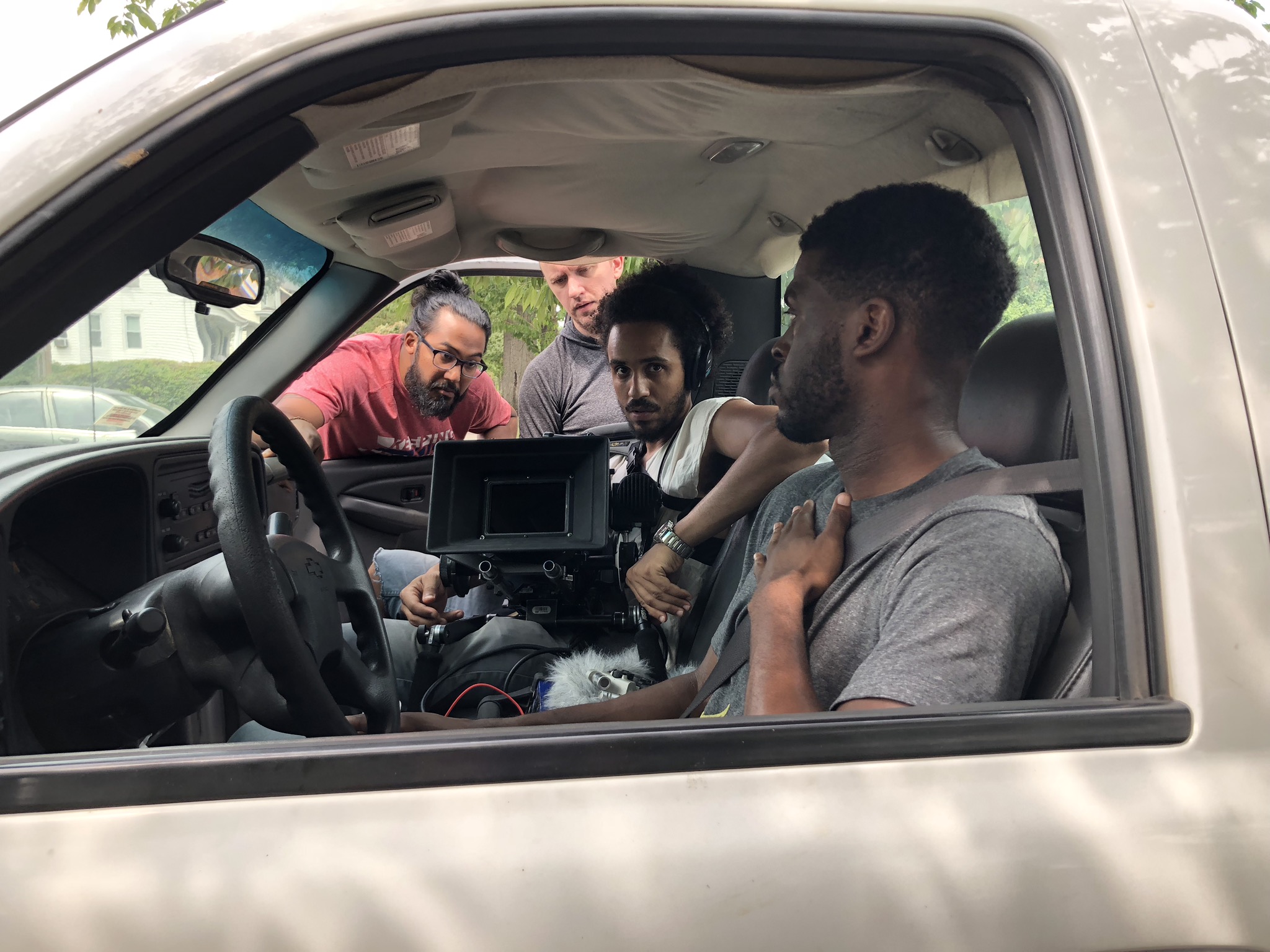
BTS with Merawi Gerima and Obinna Nwachukwu.
UKIOMOGBE: In the beginning, there’s a line in the voice over that asks the question, “You thought a film could save us?” It’s asked in a flippant way, but I’m curious to know if you think art does have the capacity to save.
GERIMA: In some ways, sure. But I think that many film students or filmmakers or artists in general overestimate the power of art. If I went into any Black community in D.C. now and looked at people’s immediate material needs, there’s nothing I can do for them as a filmmaker in that moment, absolutely nothing. There are hundreds of occupations before me who would be more valuable to them. I think that we overestimate the power of film in that regard, in the ways that it can change or save people. My dad always talks about how much he hates cinema. Even as an incredible, world-renowned filmmaker, he just can’t bring himself to say he loves film like that. And I think that you can see where him and other Black filmmakers are coming from when you look at the total destruction film has wrought across the planet to people’s histories and cultures. Black people, Native Americans, Latin Americans, Asians. Everybody has suffered under this incredible destructive power of misrepresentation, grotesque caricature, and subhuman depictions. So its power in that regard is undeniable. The need for us as filmmakers to enter into that battle, turn the tide, and bring restorative artwork into the world is present and clear. I think that both of these things must be held in our minds as we move forward. We have to re-contextualize our ideas about what film can do and I think that would make us more precise in our work.
